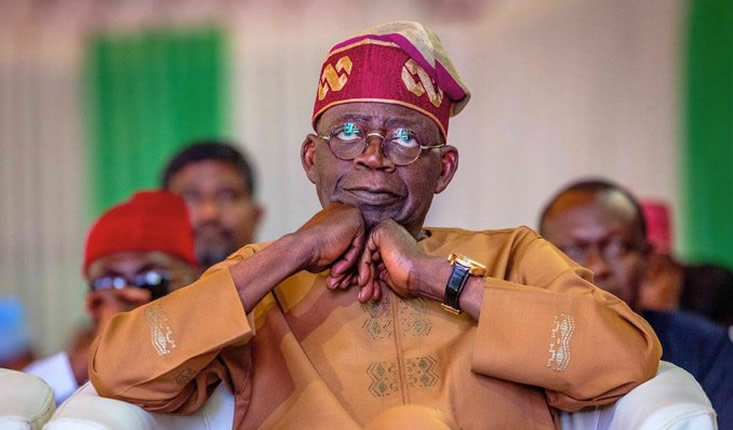There was disquiet at the International Conference Centre (ICC), Abuja, venue of the Inauguration Lecture yesterday, following the conspicuous absence of the President-elect, Bola Tinubu from the event, which was organised in his honour.
However, Tinubu was represented by the Vice President-elect, Senator Kashim Shettima, who did not say anything about his whereabouts, but only proceeded to read his speech.
In the speech read on his behalf, the President-elect declared that Nigeria stands at the precipice of a new era, where the ideals of democracy would guide her path towards sustainable development.
At the event, President Muhammadu Buhari also declared that Nigerians could overcome their differences and forge a common cause for progress.
Former President Uhuru Kenyatta of Kenya has appealed to the incoming President of Nigeria, Tinubu to unite the country irrespective of the ethnic, political, and religious cleavages that may exist.
The Vice President-elect, Shettima also insisted that Tinubu cannot Islamise Nigeria.
At the Inauguration Lecture organised by the Presidential Transition Council (PTC), with the keynote address delivered by Kenyatta at the International Conference Centre (ICC) in Abuja, Tinubu was absent and was represented by the Vice President-elect, Shettima.
In a statement issued by the Office of the President-elect and signed by Tunde Rahman, the incoming president, through the Vice President-elect, Shettima, highlighted the indispensable role of democracy as the cornerstone for the nation’s progress and prosperity.
The president-elect also called on Nigerians to stand together with his incoming administration to birth a better country, while also restating his commitment to the ideals of democracy as the best form of government.
He said: “Distinguished guests, democracy is more than a system of governance; it is the very lifeblood that empowers a nation to flourish and thrive.
“We stand at the precipice of a new era, where the ideals of democracy will guide our path towards sustainable development,” he explained.
Tinubu, while embracing his African identity, further stated that he recognised the collective efforts of Nigerians and Africans in shaping their democratic political cultures and institutions, tailored to the unique conditions and challenges faced by their societies.
He articulated the essence of democracy, emphasising that it transcends being a mere form of government.
Tinubu noted: “Democracy, my fellow countrymen, is not only a political system; it is a way of life. It embodies a distinctive code of thought and conduct, demanding the utmost integrity and self-improvement from leaders.”
While explaining the paradoxical nature of democracy, the president-elect noted that while it guarantees freedom, its survival hinges on responsible and measured use of that freedom.


